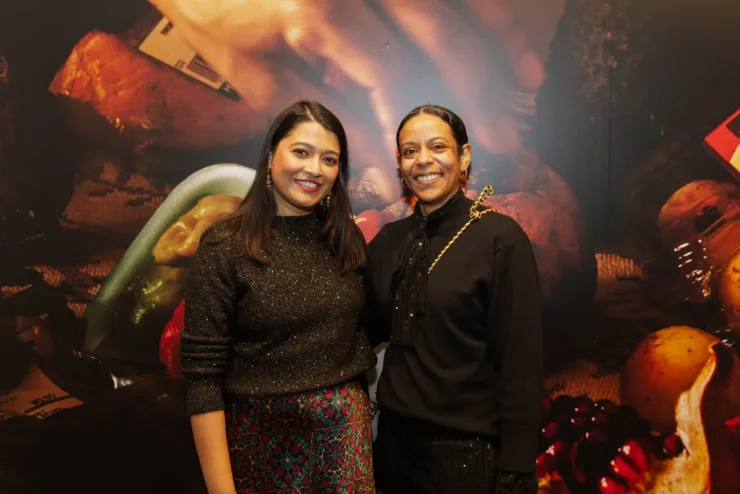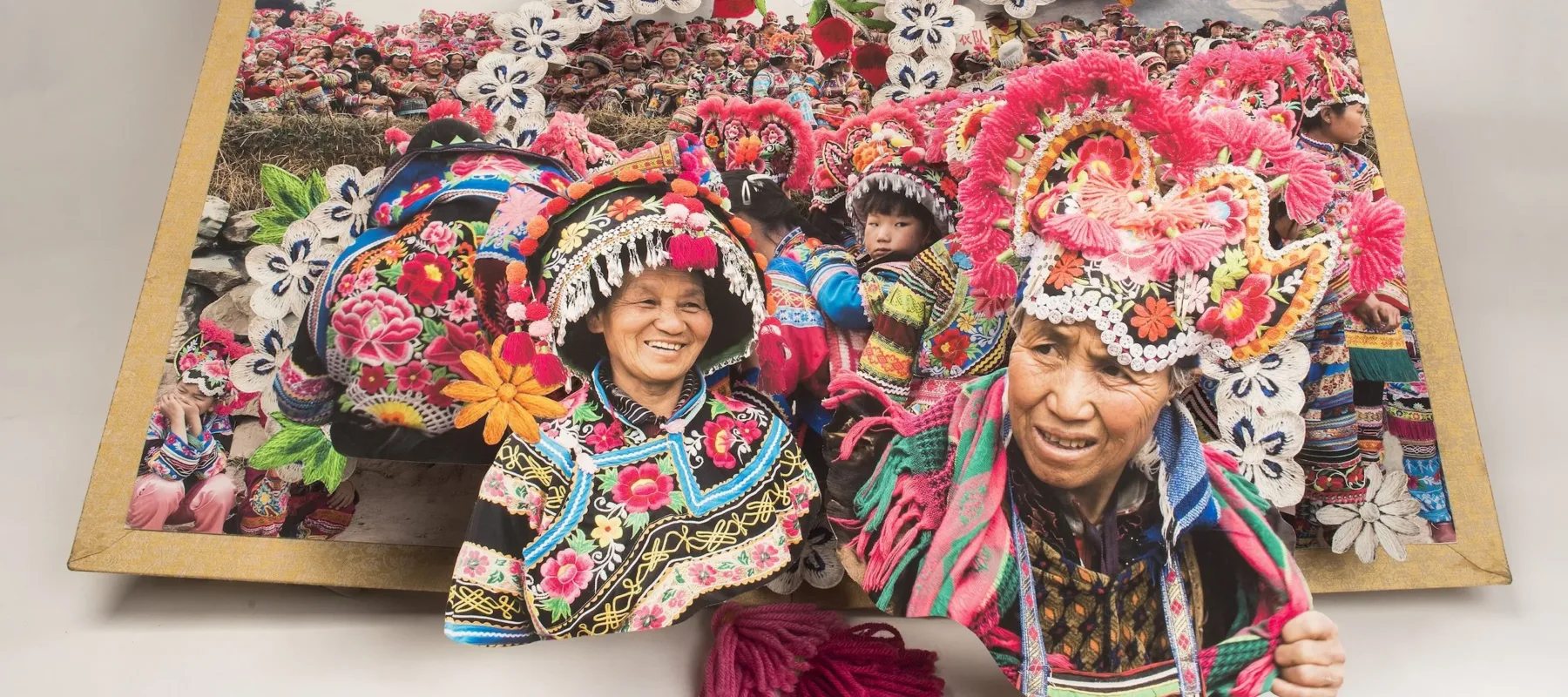WASHINGTON—The National Museum of Women in the Arts (NMWA) presents Wanderer/Wonderer: Pop-Ups by Colette Fu, on view Oct. 14, 2016–Feb. 26, 2017. This focus exhibition highlighting the book artist and photographer Colette Fu (b. 1969) features 12 works inspired by eerie historical sites in Philadelphia, and life and culture in China’s Yunnan Province.
Fu creates complex pop-up book sculptures that combine images of people, architecture and nature. She engages passionately with myths, legends and folklore. The drama of her subjects is matched by her powerful imagery and exceptional engineering skills that take the art of pop-ups to new heights.
“Featuring her photography of people with colorful costumes, food and symbols of their cultures, Fu’s pop-ups project forward into viewers’ space and almost seem to come alive,” said Curator of Book Arts Krystyna Wasserman. “Her themes are largely inspired by her personal experiences, but her art also embodies feelings of fear, courage and exuberance experienced by all of humankind.”
Wanderer/Wonderer presents four works from Fu’s series “Haunted Philadelphia,” inspired by spooky historical sites in her hometown, and eight pop-ups from the series “We are Tiger Dragon People,” her visual explorations of the culture in her ancestors’ homeland of Yunnan.
Raised in New Jersey, Fu graduated college with a degree in French language and literature, but she changed course during a trip to Yunnan, where she stayed for three years. In Yunnan, Fu reconnected with her family’s roots and discovered her own passion for photography and storytelling. After three years, Fu returned to the United States and earned an MFA in photography from the Rochester Institute of Technology.
As a way to embody universal feelings of anxiety or unease, Fu sometimes chooses subjects that are tragic, darkly humorous or frankly frightening. She blends lore and history with her own imagination to develop her poignant themes. While exploring the city, she discovered that Philadelphia, known for historic American landmarks, is also rife with stories of ghosts and hauntings. Around the same time, her attention was caught by pop-up books, and she taught herself how to make them by deconstructing children’s pop-ups. Fu researched 20 haunted Philadelphia sites, which she photographed and transformed into gigantic pop-up book-sculptures.
Fu’s Rodin Museum (2005–06) was inspired by a tragic story of Vietnam War-era young lovers, Rachel, the daughter of a prominent doctor, and Hank, from a poor family, who secretly met at the museum’s garden and were separated by her parents. After two years’ absence, Rachel learned that Hank had died in Vietnam. Devastated, she went alone to the museum, found it locked and was killed by a car as she dashed across the busy Benjamin Franklin Parkway.
Fu associated their tragic story with the unhappy love affair of French sculptor Camille Claudel (1864–1943) and August Rodin (1840–1917), her mentor and lover. Fu re-created pop-up versions of Rodin’s and Claudel’s sculptures in the museum’s garden. The book is a theater where human dramas unfold.
Fu’s first trip in 1994 to southwestern China redirected her interests to the exploration of her roots and her identity. She repeated the journey in 2008 when she was awarded a Fulbright Fellowship to photograph, research and create “We are Tiger Dragon People,” a series of pop-up books about minorities in Yunnan. While there for the second time, she observed dramatic changes. Industrial development, tourism and globalization had changed the culture of ethnic groups she photographed 12 years earlier. In rural areas, however, villagers still cultivated old traditions and lifestyles. Fu visited more than 50 remote villages during her 11-month stay, meeting and photographing people while attending festivals and religious ceremonies. She was driven by the desire to capture these cultures before they disappear.
In Dai Food (2008–13), Fu introduces viewers to the cooking of the Dai people, with sour, spicy, salty and sweet flavors. She took a picture of a young Dai woman wearing a long skirt and bodice. Her hair is decorated with flowers, and she is shown with street-food specialties of the region: grilled chicken, kebabs, pig tail, fermented eggs, beef with red pepper, snails, pork liver, spicy noodle salad and more.
Each of Fu’s pop-up books tells a story. She is a fearless wanderer who shares her wonders and helps us understand the world around us.
Wanderer/Wonderer: Pop-Ups by Colette Fu, presented in the Teresa Lozano Long Gallery of the National Museum of Women in the Arts, is organized by the museum and generously supported by the Clara M. Lovett Emerging Artists Fund, with additional funding provided by the Judith A. Finkelstein Exhibition Fund and the members of NMWA.
The National Museum of Women in the Arts
The National Museum of Women in the Arts (NMWA) is the world’s only major museum solely dedicated to celebrating the creative contributions of women. The museum champions women through the arts by collecting, exhibiting, researching and creating programs that advocate for equity and shine a light on excellence. NMWA highlights remarkable women artists of the past while also promoting the best women artists working today. The museum’s collection includes over 4,700 works by more than 1,000 women artists from the 16th century to the present, including Mary Cassatt, Frida Kahlo, Alma Thomas, Lee Krasner, Louise Bourgeois, Chakaia Booker and Nan Goldin.
NMWA is located at 1250 New York Avenue, NW, Washington, D.C., in a landmark building near the White House. It is open Monday–Saturday, 10 a.m.–5 p.m. and Sunday, noon–5 p.m. For information, call 202-783-5000 or visit nmwa.org. Admission is $10 for adults, $8 for visitors 65 and over and students, and free for NMWA members and youths 18 and under. Free Community Days take place on the first Sunday of each month. For more information about NMWA, visit nmwa.org, Broad Strokes Blog, Facebook, Twitter or Instagram.

